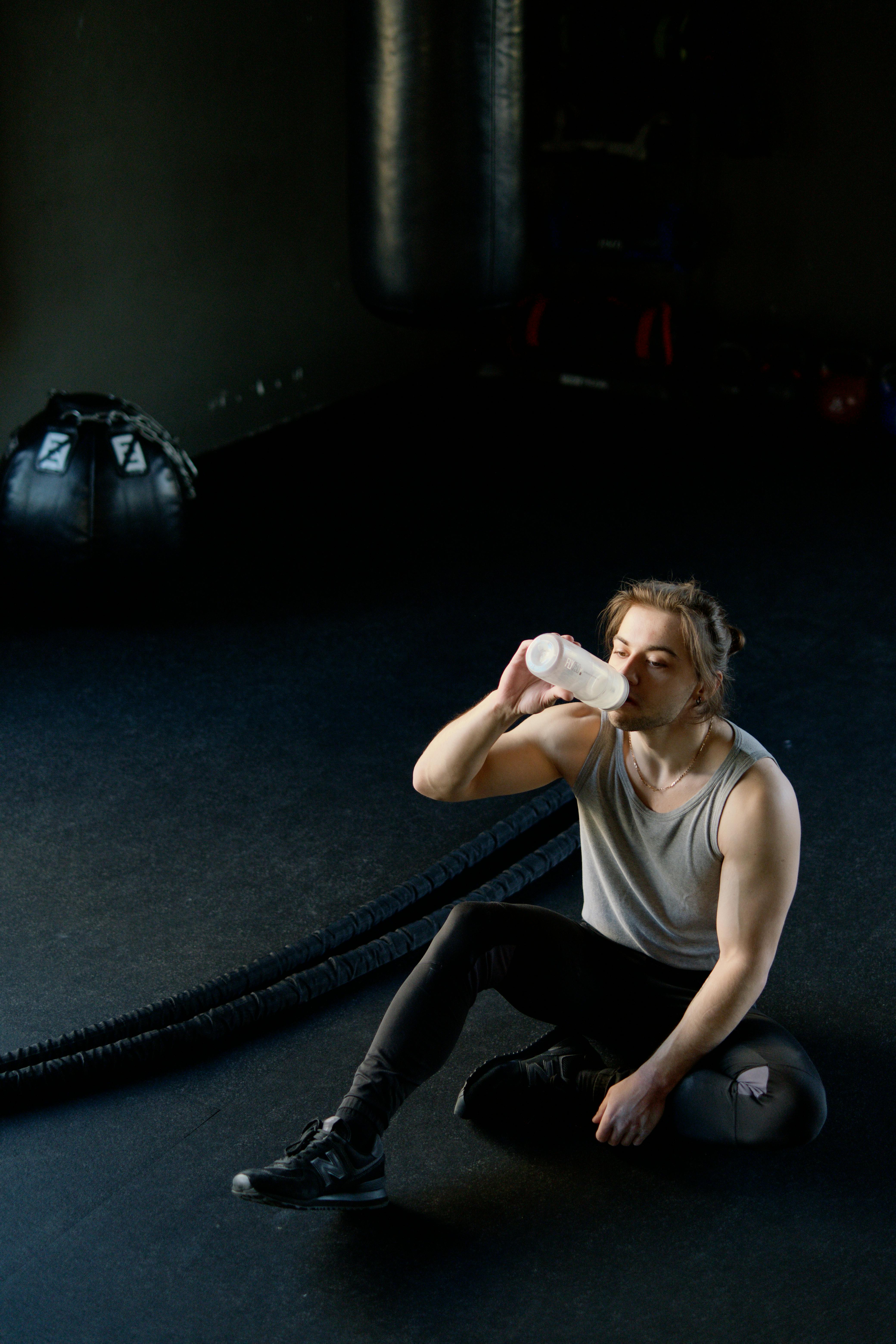How to Effectively Achieve Muskelaufbau with a Kaloriendefizit in 2025

Understanding Muskelaufbau and Kaloriendefizit
Building muscle while maintaining a caloric deficit is a challenge faced by many fitness enthusiasts, particularly those looking to lose weight while enhancing their physique. Understanding the relationship between muscle growth, caloric intake, and macronutrients is essential for anyone interested in effective fitness. Achieving the right balance of nutrition and exercise is crucial for maximizing muscle gain and losing fat simultaneously.
The concept of a Kaloriendefizit, or caloric deficit, involves consuming fewer calories than the body expends, leading to weight loss. However, many believe that being in a deficit eliminates the potential for muscle growth or maintenance. This article will break down how one can build muscle (Muskelaufbau) effectively, even while reducing caloric intake.
The journey encompasses strategic planning around nutrition, effective workout routines, and recovery practices. By carefully tracking caloric needs and making informed dietary choices, individuals can still achieve their fitness goals of increasing muscle mass and losing body fat. In this article, we will cover nutritional strategies, workout plans, and practical tips.
Importance of Energy Balance
Energy balance is the foundation of any fitness journey, particularly regarding muscle gain and weight reduction. When aiming for Muskelaufbau while in a Kaloriendefizit, understanding your daily caloric needs (Kalorienbedarf) becomes essential. A well-calculated energy balance helps ensure that the body has enough fuel to support muscle growth and recovery while promoting fat loss.
Key methods for calculating caloric needs include using the Basal Metabolic Rate (BMR) and total caloric expenditure of daily activities. Implementing tools or apps can help track this data efficiently. It’s critical to aim for a moderate caloric deficit that promotes fat loss without sacrificing muscle mass.
The Role of Macronutrients
Macronutrients—proteins, carbohydrates, and fats—play a vital role in supporting a fitness routine based on Muskelaufbau and Kaloriendefizit. To effectively build muscle, adequate protein intake should be prioritized. Research suggests aiming for approximately 1.6 to 2.2 grams of protein per kilogram of body weight can optimize muscle protein synthesis.
Carbohydrates are also important as they provide energy for workouts (Workout-Routine) and support recovery. Balancing macronutrients—especially during a cutting phase—ensures the body receives the necessary nutrients for both energy and muscle maintenance.
Fats, while often demonized, are crucial for hormone regulation and overall health. Incorporating healthy fats into the diet can contribute to a sustainable eating plan without feeling deprived.
Effective Training Regimens
A well-structured training plan (Trainingsplan) is integral to achieving progress in muscle building, even under a caloric deficit. Implementing high-intensity training (Hochintensitätstraining) and strength training (Krafttraining) regularly can stimulate muscle growth by creating the necessary stress for hypertrophy.
Additionally, ensuring progressive overload—gradually increasing the demands on the musculoskeletal system—will yield favorable results. Focusing on compound movements can optimize muscle engagement, promoting effective muscle gain even while consuming fewer calories.
It’s imperative to maintain a clear understanding of proper exercise form to prevent injuries, especially during caloric restrictions when recovery can take longer.
Nutritional Strategies for Effective Muskelaufbau
Building on the fundamental principles of energy balance and macronutrients, specific nutritional strategies greatly aid in achieving your goals of muscle gain and fat loss.
Smart Meal Planning
Meal planning (Essensplanung) can dramatically improve dietary adherence while ensuring a balanced nutrient intake. A practical approach to meal planning involves preparing meals in advance and using flexible recipes that accommodate your caloric targets.
By focusing on nutrient-dense foods rich in essential vitamins and minerals, as well as lean protein sources, you can support muscle growth without exceeding calorie limits. Engaging in meal prep can eliminate the chaos of weekly eating, making it easier to avoid temptation and maintain fitness goals.
Protein-Rich Food Choices
Consuming protein-rich foods can significantly enhance muscle recovery (Muskelrecovery) and growth. Foods such as chicken, turkey, eggs, fish, legumes, and dairy provide the body with essential amino acids required for muscle synthesis.
Incorporating protein shakes or supplements can also be beneficial, particularly when struggling to meet daily protein goals via whole foods. However, it is essential to integrate these into a balanced diet to prevent dependency solely on supplementation.
Timing and Frequency of Meals
The timing of meals can affect muscle protein synthesis and recovery. Research indicates that distributing protein intake throughout the day can optimize absorption and utilization.
Implementing strategic meal timing—such as consuming protein-rich snacks (Zwischenmahlzeiten) post-workout—can enhance recovery and support muscle growth. Additionally, focusing on balanced meals at regular intervals can help maintain energy levels and curb excessive hunger, supporting a sustainable approach to finding a calorie deficit while building muscle.
Hydration and Recovery
Hydration plays a critical role in overall health and fitness, impacting both physical performance and recovery. Adequate water intake (Wasserhaushalt) is essential for maintaining optimal performance, particularly during intense training sessions.
Importance of Staying Hydrated
Water supports metabolism, nutrient absorption, and muscle recovery processes. Dehydration can hinder performance, leading to suboptimal workouts and less effective muscle growth. It’s generally recommended to drink sufficient water throughout the day, especially before, during, and after workouts.
Implementing hydration reminders can also foster a consistent drinking routine, particularly for those who lead busy lifestyles. Carrying a reusable water bottle can act as a visual reminder to stay hydrated.
Recovery Techniques
Incorporating recovery techniques such as stretching, proper sleep, and even mindfulness practices can greatly enhance muscle recovery and overall well-being. Sleep is crucial as it aids in muscle repair and hormonal balance.
Practices like foam rolling and light yoga can also help alleviate muscle soreness and improve mobility, thus promoting an overall healthier lifestyle conducive to achieving fitness goals.
Monitoring Progress and Adjusting Plans
Progress tracking (Fortschrittstracking) can provide valuable insights into muscle gain patterns and fat loss trends. Regular assessments, such as measuring body composition or strength improvements, can help inform adjustments in caloric intake or training intensity.
It’s vital to reevaluate goals regularly to ensure processes remain aligned with personal fitness aspirations. Working with a coach can also offer professional guidance, ensuring strategies are effective and motivating.
Q&A: Common Concerns About Muskelaufbau in Kaloriendefizit
Can I really build muscle while in a caloric deficit?
Yes, with the appropriate training and nutrition strategies, it is possible to build muscle while losing fat. The right balance of protein, macronutrients, and a well-structured workout plan will support this process.
What are the best sources of protein for muscle gain?
Lean meats, fish, dairy products, legumes, and protein powder supplements are among the best protein sources. Including a variety of these in your diet can ensure sufficient protein intake.
How do I calculate my personal caloric deficit?
Calculating your caloric deficit involves determining your total daily energy expenditure (TDEE) and subtracting 500-1000 calories. Apps or calculators can aid in tracking this more accurately.
What should I prioritize: cardio or strength training?
While both cardio and strength training are important for overall fitness, focusing on strength training will more effectively support muscle growth. Cardio can be supplementary but should not supersede strength training in your routine.
How often should I assess my progress?
Assessing progress every 4-6 weeks is generally recommended, allowing time to observe changes in body composition and recalibrate goals or strategies accordingly.

Conclusion: Achieving Your Fitness Goals
Successfully achieving Muskelaufbau while maintaining a Kaloriendefizit requires a holistic approach, integrating tailored nutrition, effective workouts, and recovery methods. With consistent effort and strategic planning, individuals can reach their fitness goals of muscle gain and fat loss.
Utilizing appropriate resources, such as nutritional guides and fitness programs (Fitnessprogramm), can further enhance one’s journey. Continuous adaptation and a mindful attitude towards fitness can make the process enjoyable and sustainable, leading to lasting results.
